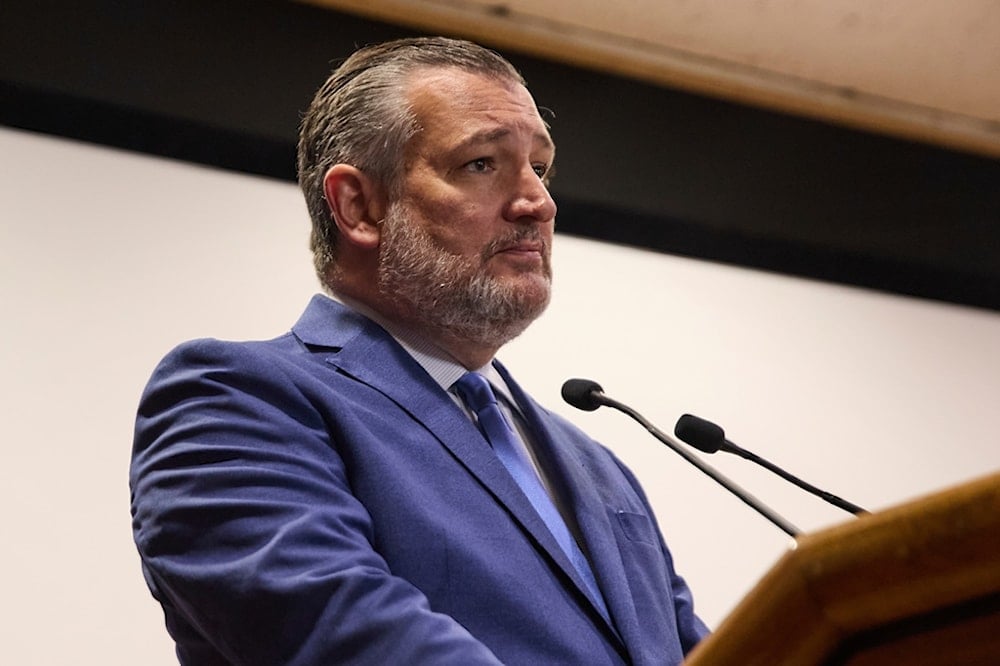White House says Ted Cruz is undermining Trump to prep 2028 run
The White House sees Ted Cruz's committee actions and public positioning as early steps toward challenging Vice President JD Vance in the 2028 Republican presidential race.
-

US Sen. Ted Cruz, R-Texas, speaks with reporters about his visit in Mexico City, Friday, Aug. 29, 2025. (AP Photo/Megan Janetsky)
The White House is increasingly viewing Senator Ted Cruz’s recent political maneuvers as part of a broader effort to position himself against President Donald Trump and Vice President JD Vance ahead of the 2028 presidential race, according to a report published Thursday by the digital outlet Notus.
Officials believe Cruz’s posture reflects not just policy disagreements but a calculated attempt to carve out a distinct lane within the Republican Party before the next presidential cycle.
Donor Outreach
Cruz, who was Trump’s main rival during the 2016 Republican primaries, has begun laying the groundwork for another national bid, Axios noted earlier this week.
His early outreach reportedly includes attempts to build support among Jewish donors, part of a broader effort to reassure traditionally hawkish Republican funders who have grown anxious about the party’s recent tilt toward isolationism under figures like Vance and conservative commentator Tucker Carlson.
Axios also reported that Cruz has sharpened his attacks on Carlson, accusing him of promoting antisemitism and criticizing his foreign-policy views, in what many Republicans view as an indirect confrontation with Vance, one of Carlson’s closest political allies.
Committee Friction
Inside the administration, frustration has been mounting over how Cruz is wielding his position as chair of the Senate Commerce Committee.
Officials accuse him of leveraging procedural tools to create complications for Trump’s priorities, including efforts earlier this year to secure unilateral subpoena power on the committee, a move the White House blocked over fears he would target key Trump-aligned figures in the tech and media sectors.
The nomination of the next NASA administrator has since become the most visible flashpoint. While Cruz is pushing for Transportation Secretary Sean Duffy, the White House, backed by Vice President Vance and senior adviser Susan Wiles, remains firmly behind nominee Jared Isaacman.
Hearing Reopened
Although Isaacman completed a confirmation hearing in April and previously received committee approval before his nomination was temporarily withdrawn and resubmitted, Cruz has placed him back on the calendar for a second hearing in early December.
Republicans involved in the process told reporters this additional scrutiny was unexpected, especially after a government shutdown and procedural reset that many believed would lead to a swift renewal of the nomination.
A figure close to Trump criticized the senator’s actions, saying: "The roadblocks that Ted is putting up in front of the president’s nominee for NASA administrator, someone who’s gone through the hearing and is qualified, only serve as a desperate attempt to relaunch a political career as a protest candidate." The same source added: "Ted has been terribly unserious as of late."
Ideological Split
Cruz has also taken a sharper tone in his remarks about Tucker Carlson, a US commentator known for his alignment with Trump and close relationship with Vice President Vance. Several GOP insiders interpret this as another deliberate effort by Cruz to distance his brand from Vance as internal jockeying for 2028 intensifies.
Coupled with his clashes over NASA, his bid for expanded subpoena power, and his recent criticism of FCC officials for comments defended by Trump’s allies, the pattern has reinforced a belief inside the White House that Cruz is methodically constructing a rival platform: one that is more interventionist on foreign policy, more appealing to establishment donors, and increasingly at odds with the nationalist-populist faction anchored by Vance and Carlson.
Read more: Trump rules out vice presidency bid in 2028

 4 Min Read
4 Min Read








